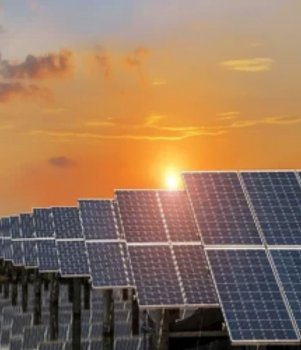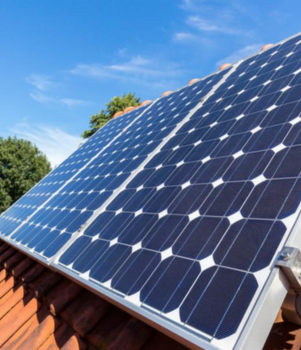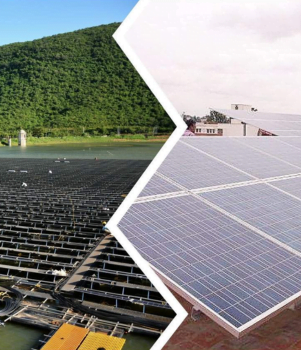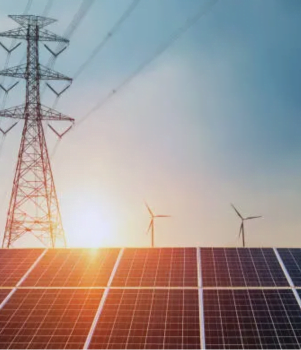Agriculture solar solutions
Agriculture solar solutions provide farmers with sustainable energy to power irrigation systems, equipment, and lighting. These solutions reduce reliance on traditional power sources, lower operational costs, and enhance productivity by using renewable solar energy. By integrating solar technology into agricultural practices, farmers can increase efficiency while contributing to environmental conservation. Ideal for off-grid areas, these systems are reliable, eco-friendly, and can be tailored to meet the specific energy needs of farms.
There’s a variety of agriculture solar system solutions, each with distinct characteristics like placement, materials, grid connection, and battery options. You have the freedom to select the one that best fits your farm’s energy needs. Agricultural solar systems vary significantly based on their applications. The primary types include solar-powered irrigation, solar water pumps, solar lighting systems, and off-grid solar setups, all designed to enhance farm productivity while reducing energy costs and promoting sustainability.
Solar Applications
Solar Hybrid System
Solar System Independent of the Grid
Grid-tied Solar System
Further factors to ponder regarding solar power systems
When considering solar power systems for agriculture, several key factors come into play. Selecting the right solar solution for your farm is critical, but it’s equally important to weigh the following considerations:
Size of the Solar Power System:
The size of the agricultural solar power system depends on the energy needs of your farm, such as powering irrigation, machinery, or lighting. Additionally, it’s crucial to assess whether you want to incorporate battery storage to achieve energy self-sufficiency. The amount of sunlight available and your farm’s power consumption patterns will also influence the system size.
Placement of Solar Panels:
Solar panels are usually installed on rooftops, ground-mounted, or even on pole mounts in agricultural settings. The location depends on factors such as land availability, the roof’s structure, or whether a specific area receives ample sunlight for optimal energy production.
Solar Panel Material:
Agricultural solar panels come in various materials, including monocrystalline, polycrystalline, and thin-film types. Each material has its own advantages in terms of efficiency and cost, and your solar installer can recommend the best material based on your farm’s energy requirements and budget.
Fixed or Sun-Tracking Arrays:
Fixed arrays are the most common choice for agricultural solar systems due to their simplicity and lower cost. However, sun-tracking arrays, which adjust according to the sun’s position, can maximize solar power output—ideal for farms with high energy needs.
Solar Power System Financing:
Financing options for agricultural solar solutions vary. Farmers may opt to buy systems outright or take advantage of loans and leasing options to reduce upfront costs. Government subsidies and incentives may also be available, easing the financial burden of switching to solar energy.
Benefits of Agricultural Solar Panels:
Reduced Energy Costs:
Solar panels help significantly lower electricity costs for farm operations. Once installed, solar systems generate free electricity, reducing or even eliminating power bills.
Sustainability and Environmental Benefits:
Solar energy is a renewable and clean power source that reduces the farm’s carbon footprint and reliance on non-renewable energy sources.
Energy Independence:
Agricultural solar systems provide energy self-sufficiency, particularly in remote or off-grid locations, allowing farms to maintain operations without dependence on the electricity grid.
Government Incentives:
Many governments offer financial incentives, grants, or subsidies to support farmers in adopting solar energy, making the transition to solar more affordable.
Increased Farm Value:
Installing a solar system increases the value of your farm, as energy-efficient and sustainable operations are highly desirable in modern agriculture.
How to Choose the Right Solar System for Your Farm:
⚡Energy Needs:
Evaluate the specific energy requirements of your farm, whether it’s for irrigation, equipment, or livestock facilities, to choose the appropriate system size.
🏢 Land Space and Orientation:
Ensure you have enough land or roof space to accommodate solar panels. Ground-mounted systems may be ideal for farms with ample land but limited roof space.
💵Budget:
While solar is a long-term investment, the initial costs can vary. Consider financing options, including government grants, to reduce upfront expenses.
📏System Size:
Choose the system size that aligns with your farm’s energy consumption and available space, typically ranging from smaller 5 kW systems to large-scale installations.




